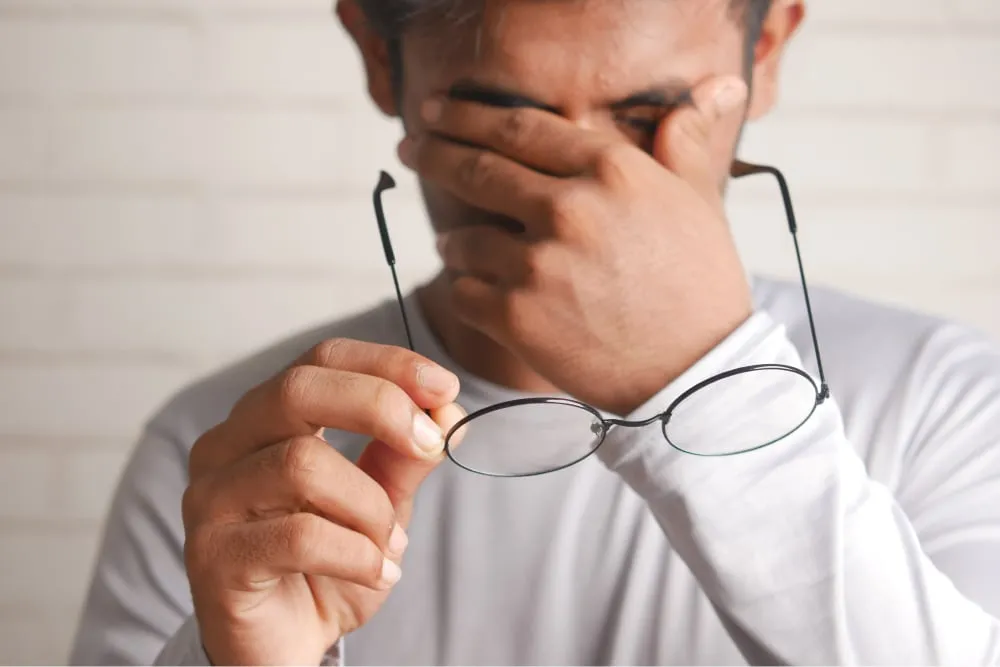How often does parotid gland swelling occur?
Below are a few three different studies that were done for the purpose of answering this question.
Study #1
Who did the study?
Four scientists at a German university, 1990. (3)
How the study was done
Oral examination of 11 patients with anorexia and 41 with bulimia, compared to 50 healthy control patients.
Findings of the study
27 or 41 bulimia patients had the parotid gland swelling on both sides of the face (66%). They also found erosion of the enamel simultaneously.
Study #2
Who did the study?
Four scientists at the University of London, 2008. (4)
How the study was done
MRI exams of only 5 subjects with a purging form of eating disorder were compared to 5 controls. The exam was done 6-9 weeks after the cessation of vomiting.
Findings of the study
Enlarged parotids were not consistently seen in the eating disorder patients; however, only five patients were in the study.
Study #3
Who did the study?
Seven researchers from Italy, 2021. (5)
How the study was done
Six patients suffering from eating disorders (4 with anorexia-bulimia) and recurring symptoms of gland swelling were followed up with clinical and radiographic analysis as well as a technique that allows the actual visualization of the salivary glands and their ducts.
The plaques were washed out of the ducts; any strictures in the ducts were dilated and mucous plugs and debris from the ducts were removed with irrigation or forceps.
Findings of the study
Both glands were affected in 5 out of 6 patients. In 50% of the parotid glands, one of the major ducts was affected; in 33% of the glands, only secondary ducts were affected; and in 17% of the glands, both the primary and secondary ducts were affected. Improvement in symptoms was recorded in 83% of the patients. One patient did not have symptom relief or volume reduction after four procedures during six months. Another patient did not have immediate improvement but did improve within 3-5 months.
The most recent study in 2021 reported an incidence of anywhere between 10% and 50%, with the condition presenting itself on either one side of the face or both. (5)
How is this swelling confirmed by the doctor?
The way that the parotid gland swelling is diagnosed is with an ultrasound test. In one German study, doctors performed an ultrasound exam of the parotid glands of 70 women between 16 and 40 years old. Twenty of them were individuals without eating disorders.
There was a significant difference in the results between the different groups. The parotid gland volume in the subgroup bulimia nervosa was 62,708 mm which was twice as high as the group without an eating disorder. Only the parotid glands were enlarged; the glands underneath the jaw were not. They concluded that eating disorders influence the size of the parotid glands although in the year of this study – 2008 – no one knew what exactly was causing this to happen. (6)
However, one medical report in 2004 commented that a 28-year-old patient affected by bulimia/anorexia nervosa had the parotid gland swelling on both sides of her face and also had swelling of the hard palate. This secondary swelling was painless and also was symmetrical. This location is where the minor salivary glands are located. (7)
One of the early reports of the enlargement of the parotid glands goes back to 1981 when three researchers reported it in the International Journal of Psychiatry Medicine. In that report, the psychiatrists stated that sometimes the enlargement of the salivary gland persists when the eating disorder has gone away and the patient is weight restored. (8)
An earlier report goes back to the beginning of the 1950s when doctors called the combination of anorexia, stopping of the periods, and swelling of the parotid glands the “mannequin syndrome”. (9) At that time, this syndrome was seen in young women These patients expressed a desire to remain thinThis was commonly seen in fashion models and airline stewardesses. (4)
Treatment of the condition
Treatment involves the ducts being cleaned out, as reported in study 9 found in the table. However, this treatment hasn’t been performed on a high number of patients yet. In that study alone, only six patients received the treatment.
In many cases the parotid gland swelling will resolve on its own as the eating disorder behaviors, specifically repeated bouts of vomiting have ceased.






































